EU against "inconvenient" Georgia Scandals, visa demarches, and attempts at regime change
In early May 2025, tensions between the Georgian authorities and the European Union flared up once again. The European side issued a series of sharp statements and demarches targeting the ruling Georgian Dream party. Under the pretext of fighting for a “European future,” Georgia is being dragged into a new geopolitical adventure—one that threatens the country with war and endangers transit routes along the Middle Corridor across the South Caucasus. The origins of these actions, as well as the context in which they are unfolding, clearly point in this direction.
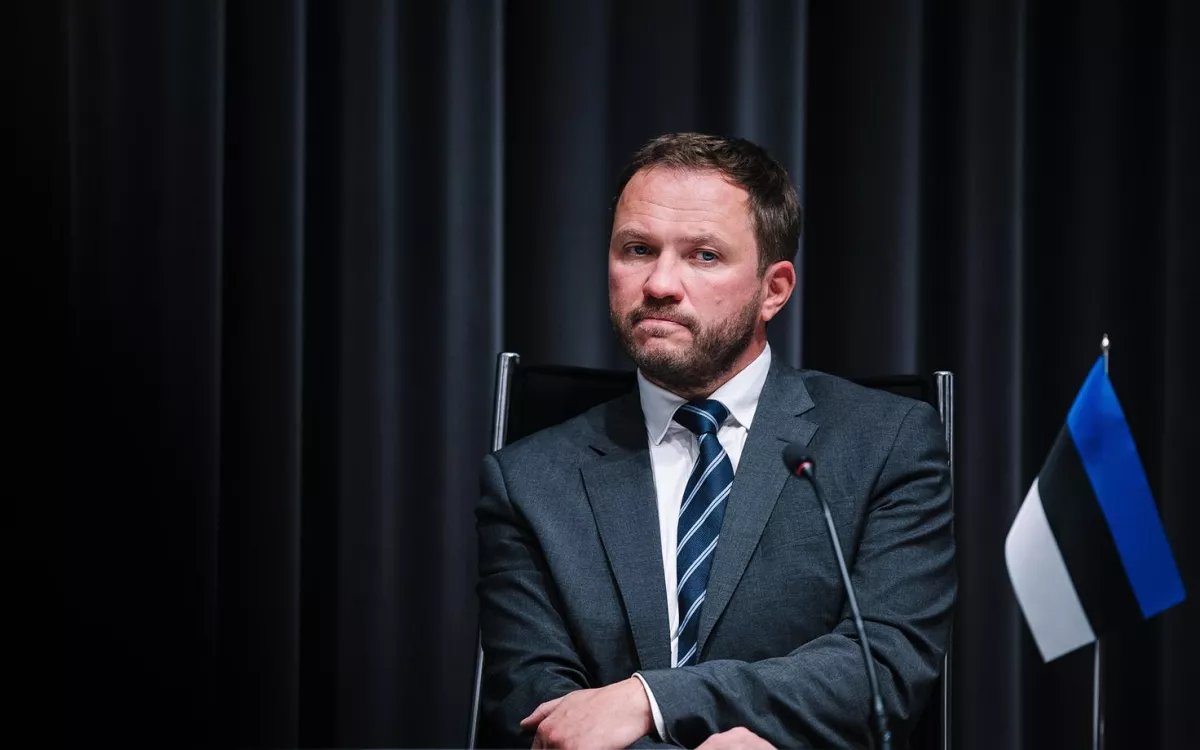
On May 8, 2025, Estonian Foreign Minister Margus Tsahkna announced the introduction of a visa regime for Georgian citizens holding diplomatic and service passports. This decision is part of a broader EU policy response to the actions of the Georgian authorities.
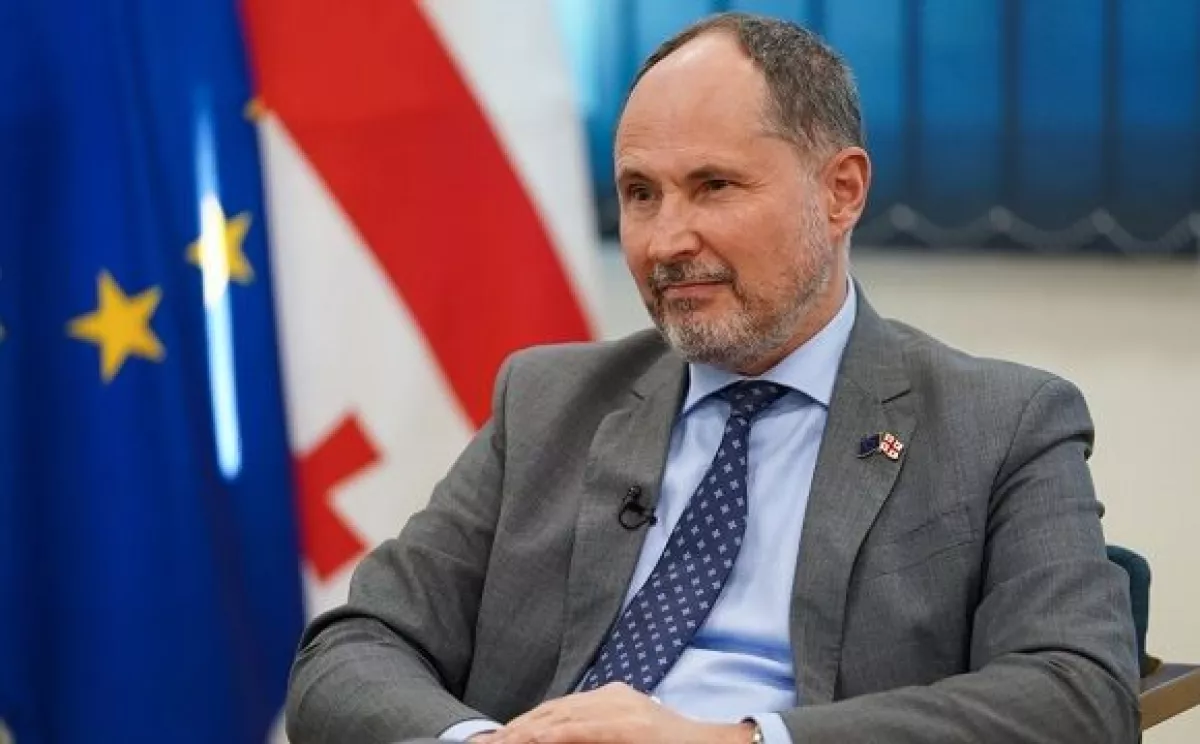
Georgia has become the only EU candidate country whose foreign minister was not invited to the informal meeting of the EU Foreign Affairs Council held on 8 May 2025 in Warsaw. According to the EU Ambassador to Georgia, Paweł Herczyński, this was due to the actions of the Georgian authorities over the past year, which have led to a halt in the country’s EU integration process.
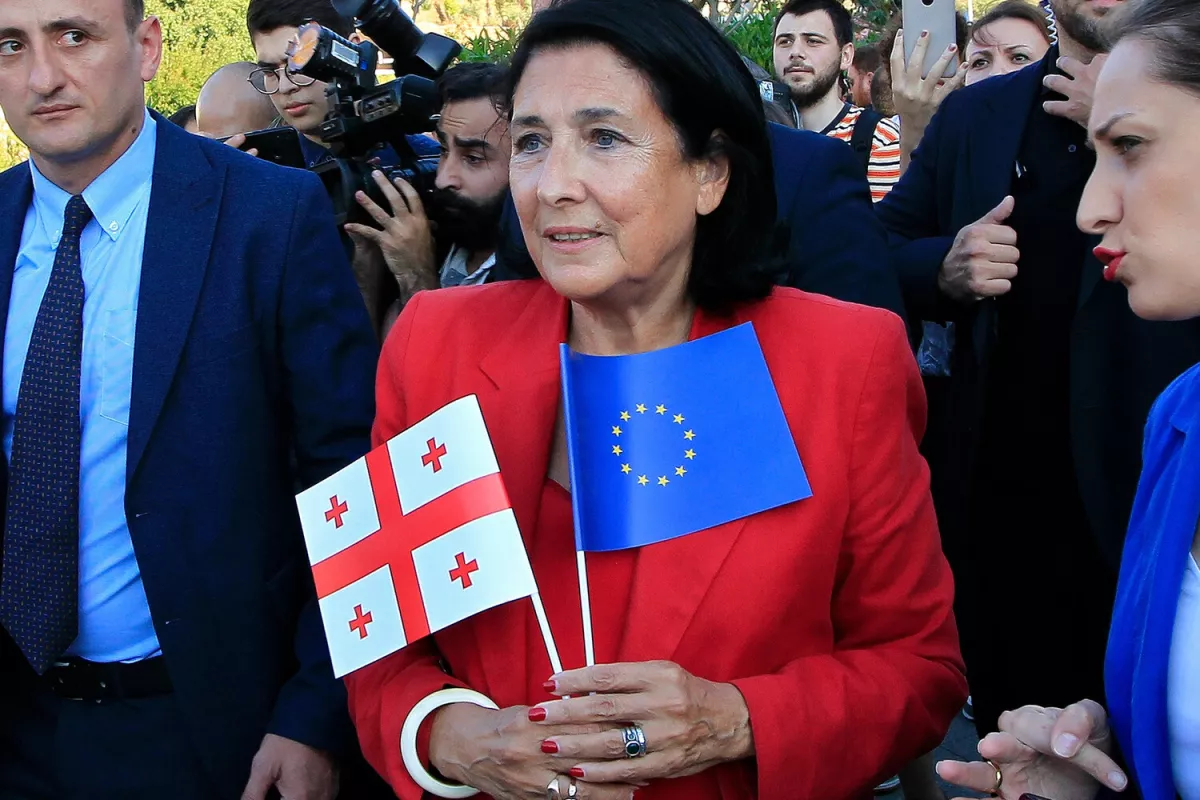
On 9 May 2025, Europe Day, Georgia’s pro-European opposition, supported by former President Salome Zourabichvili, organised a march in support of EU integration and to demand the release of those detained during previous opposition rallies. These events, with their clear anti-government stance, coincided with a gathering hosted by the EU Delegation in Georgia. During the event, Ambassador Paweł Herczyński declared that Georgia’s EU integration process had been suspended and warned that “Georgia may lose its chance of EU membership for a long time.”

In an interview with InterpressNews, Swedish Ambassador to Georgia Anna Lyberg expressed support for Georgian civil society and voiced concern over recent developments in the country, which, she said, do not align with the values and principles of the European Union.
In recent days, sharp statements and unfriendly gestures toward the Georgian authorities have come primarily from representatives of the Baltic states, Poland, and Sweden. Meanwhile, countries that are geographically and politically closer to Georgia—such as Slovakia, Hungary, Bulgaria, and Turkey—have refrained from making serious accusations against Tbilisi or criticising the state of its democracy. However, the Baltic states and Poland, as the conflict in Ukraine inches toward a potential ceasefire, are increasingly becoming a staging ground for preparations for a new war.
Today, a growing number of analysts and senior EU officials are openly discussing the possibility of a future war between Russia and the Baltic states, Poland, and potentially even NATO’s newest members—Finland and Sweden.
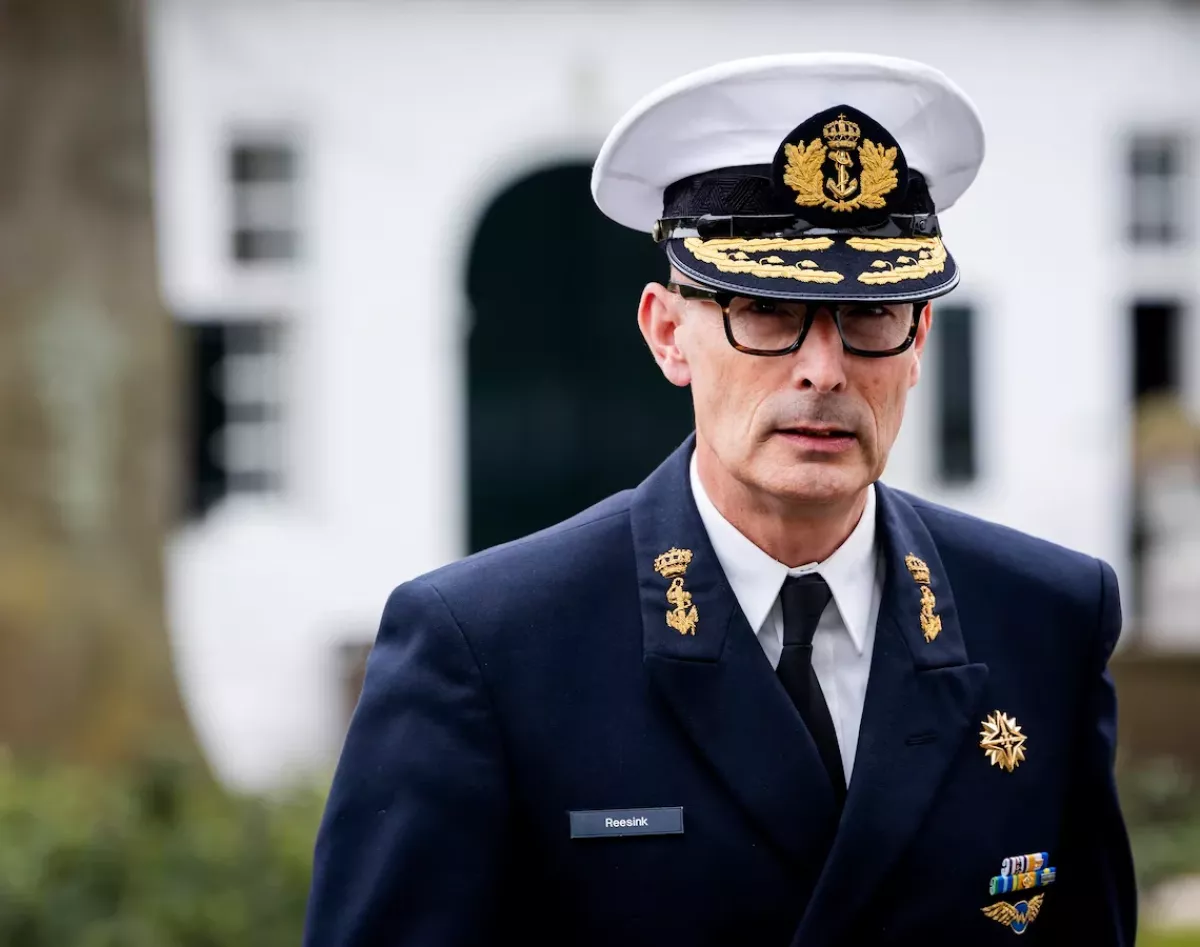
This scenario was reinforced by a recent interview with Peter Reesink, director of Dutch military intelligence agency MIVD. He noted that Russia is producing significantly more artillery than is needed for the war in Ukraine and is redeploying new artillery units toward NATO’s borders, including the Baltic states and Finland. According to the Dutch intelligence chief, once a ceasefire agreement with Ukraine is reached, Russia could be ready for a new armed conflict within a year.
A new war—especially one that drags on and results in yet another “frozen conflict and truce” without a genuine peace—could effectively shut Russia’s “window to Europe.” It would also disrupt the transit of Chinese goods through Russian Baltic ports via the so-called “Northern Corridor.”
It is unlikely that by the time a new war breaks out in the Baltic region, the transit of goods from China to Europe via Russia and Ukraine will have resumed. On the Russia–Ukraine front, the discussion still revolves around a possible freezing of the conflict, not a full-fledged peace agreement. Ukraine is not prepared to relinquish its territories occupied by Russia, and Russia, for its part, shows no intention of giving up its gains.
President of Azerbaijan Ilham Aliyev, during his speech at ADA University in April 2025, drew attention to the geopolitical nature of the unfolding situation. Referring to recent remarks made by European Commission President Ursula von der Leyen, he noted:
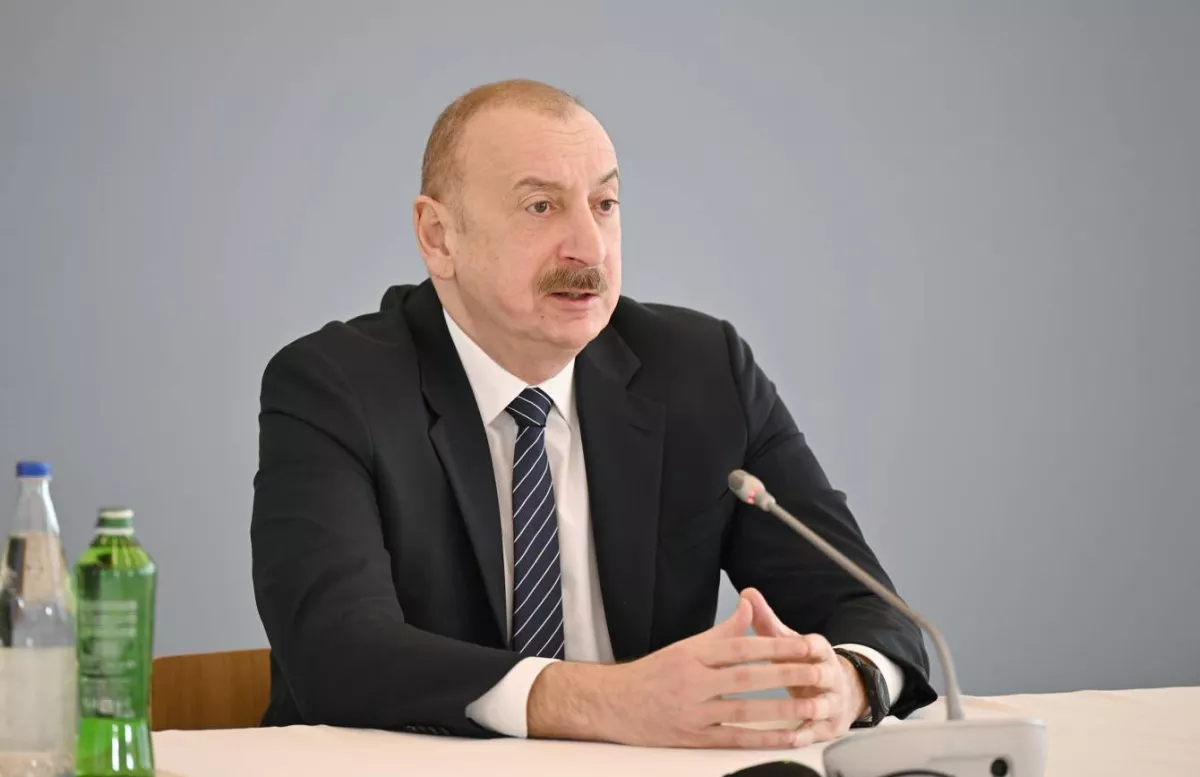
"Frankly speaking, I was surprised when I was informed about the comments of the President of the European Commission, Madame Ursula Von Der Leyen, which she made in Uzbekistan, at the Summit of Central Asian leaders with the leadership of the European Commission, when she was talking about opening the borders between Azerbaijan and Armenia, and Armenia and Türkiye, in order to facilitate the Middle Corridor, as they call it in Europe - the Global Gateway. That was very strange, because this corridor exists, and Armenia plays no role in that. We can understand the feelings of European bureaucrats towards Armenia, but you cannot ignore the map. And we, in Georgia and in Azerbaijan, have provided all those facilities, which today help Europeans communicate with Central Asia…"
If, by some means—such as bringing the opposition to power and opening a “second front”—Georgia is drawn into a new war in the northeast of the EU and in the Baltic region, this would mean a complete shutdown of all overland transit routes across the Eurasian continent for China. Only maritime routes would remain, but these are firmly dominated by the United States, which has no intention of relinquishing its control.
This raises a question: is the complete severing of continental transport corridors the real objective behind the escalation of these military conflicts? After all, it appears that Georgia’s balanced and pragmatic policy stands in the way of a broader plan to trigger a “transit collapse” in Eurasia.
It is no coincidence that Georgia is being targeted by so-called “well-wishers” from northeastern Europe—countries that are, in fact, preparing their populations for a new war. In a likely future conflict involving the Baltic states, Scandinavia, and Poland against Russia, Georgia is once again being positioned—through “pro-European” revolutionaries—as a potential “second front.”
The same external forces have already attempted once to open a “second front” of the Ukraine war in Georgia, offering in return some vague “European perspective” and their questionable “values.”
In the 2024 elections, the Georgian people unequivocally rejected such plans. Backed by a clear popular mandate, the Georgian authorities successfully resisted the opposition’s and former President Salome Zourabichvili’s efforts to stage a “Maidan”-style uprising and a coup d’état.
However, the recent demarches and statements from European politicians once again reveal that attempts to interfere in Georgia’s internal affairs by certain circles within the EU are far from over. The goal remains the same — to bring the opposition to power, one that would willingly turn the country into fuel for yet another geopolitical gamble.
Vladimir Tskhvediani, Georgia, exclusively for Caliber.Az








